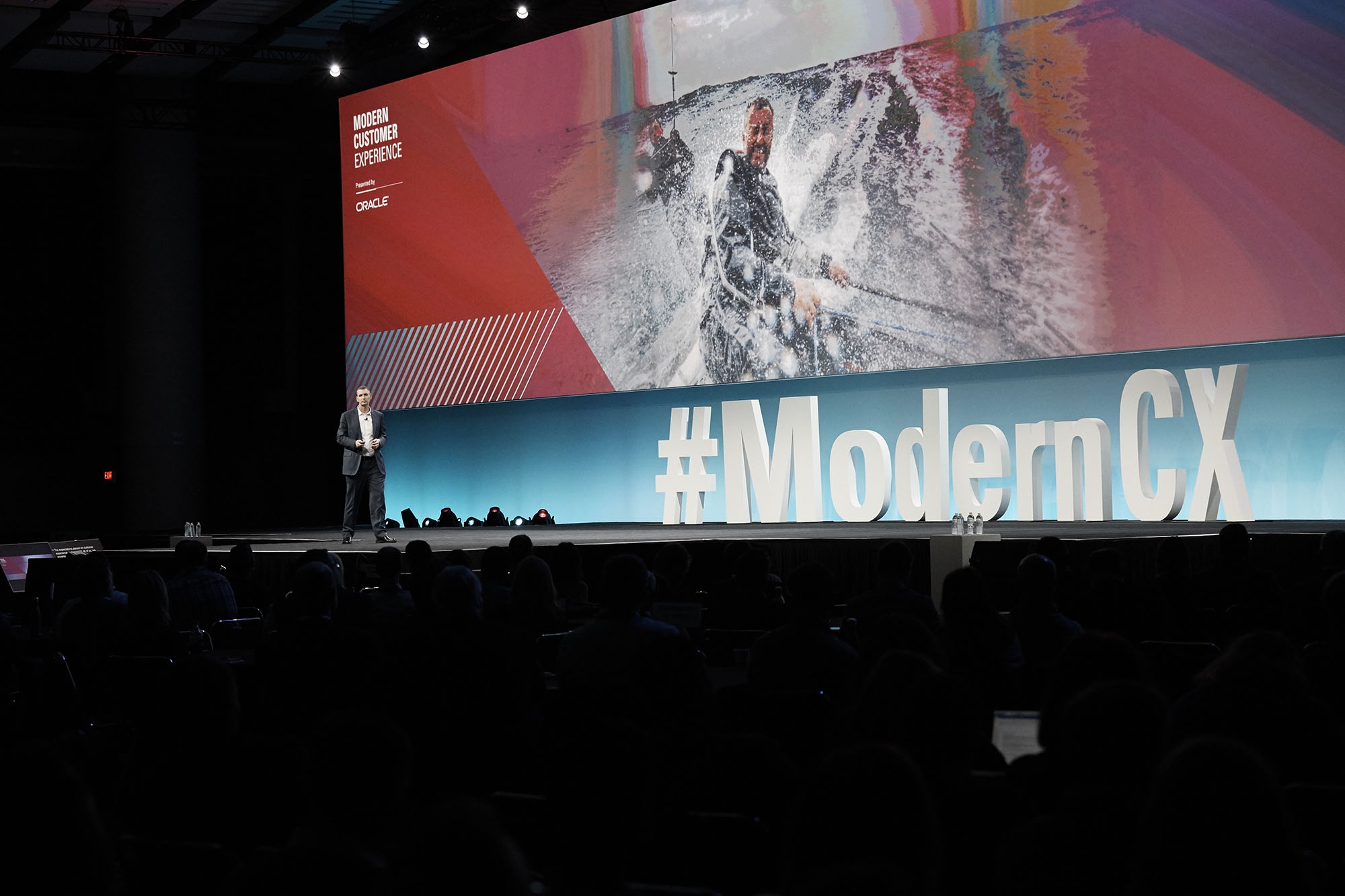At the Oracle Modern Customer Experience in Chicago this week, attendees came away with a firm understanding: digital transformation is vital to driving legendary customer experience in today’s buying landscape. That transformation is revolving heavily around how businesses position themselves to leverage customer data appropriately and efficiently to exceed their expectations.
“When you can deliver legendary experiences, you become a hero inside your organization and to your customers,” said industry thought leader Jay Baer during the opening keynote at the event. “We all now share the same problem: the mountain we must climb to exceed buyer expectations is higher and steeper than ever before. We have to get smarter, we have to get faster, we have to get more relevant, and we have to do that at every aspect of the customer journey.”
To achieve this, industry experts who presented at the event stressed the need for businesses to position themselves with a strong data foundation. With proper data management, experts added that more relevant, contextual targeting and messaging is easier to accomplish.
“Data is our first and most basic strategy,” said Shashi Seth, SVP of Oracle Marketing Cloud. “We’re going to be living and breathing data because it’s the basis of modern marketing.”
Companies like Equifax are seeing notable success with better targeting and personalization by normalizing their internal database throughout their tech ecosystem. In a session with Equifax, Fabricio Lopez, Senior Principal Consultant for Expert Services at Oracle Marketing Cloud, cited research from Larry English that states poor data quality can cost companies, on average, 15% to 25% of their operating budget.
To formulate a solid data maintenance strategy, Lopez suggested that businesses must create a living document that establishes the requirements for maintaining a company’s data quality standards.
“A well-documented data maintenance strategy will ensure that you will always have the most accurate and clean data, giving you a solid foundation for optimized marketing performance,” Lopez said.
In setting up this foundational document, Equifax and Oracle said businesses must:
- Identify the primary data owners: who owns the data?
- Document the data flow: where does data live and flow through your systems? This is helpful in showing why data normalization is vital to everyone in the business because it shows each impacted department.
- Define the buyer personas to guarantee that the right data is being collected.
- Establish a data dictionary that explains the formats, names, etc. that are relevant to the data workflow. Keeping the document up to date is vital to ensuring that data is entering systems in the appropriate format.
- Document a data import process, which is crucial for implementing external data correctly.
- Define your data cleansing process to understand the programs, update rules and explain the filters when necessary.
- Set up dashboards to clearly measure the data normalization process.
Katherine Hogrefe, Director of Demand Gen at Equifax, stated that this is a big journey to embark on, so she suggested to start small with data normalization to avoid burning out time and resources.
“Initially, we tried to do it all up front, but it can be overwhelming,” said Hogrefe. “I now suggest starting with one field, normalize it, then move on to the next one. Nothing ends up getting done if you try to normalize all at once.”
AI Driving Force Behind Marketing’s Shift From Cost Center To Revenue Generator
AI was a primary discussion topic throughout many of the sessions at the event, labeled by speakers as the tech innovation that is taking marketing and sales teams from a reactive to proactive customer experience methodology. Presenters emphasized that the role of marketing teams has changed; not only are they tasked with providing relevant insights into current and prospective customers, they are also tasked with tying their marketing efforts to closed business.
“Marketers must find the signals in the noise, match the right offer to the right customer at the right time — across multiple channels,” said Des Cahill, VP of Global Outbound Product Management for the Oracle CX Cloud, during the opening keynote. “Gone are the days where marketing was primarily creative-driven. They have to impact and measure ROI, as well as drive revenue.”
While marketing processes evolve, technology is helping drive that evolution and position companies to scale their customer data analysis capabilities. For example, Oracle released new AI capabilities for its Customer Experience Cloud at the event, which are designed to leverage insights within users’ CRM, MAP and third-party data sources to boost business results with real-time behavioral insights. The announcement included the launch of Oracle Infinity, a new solution that can connect behavioral data across touchpoints and equip marketers with the insights they need to optimize customer engagement, according to the company.
Christina Klock, Research Director at Gartner, shared research during a session that showed 35% of businesses are currently using or piloting AI and machine learning, while 36% said it’s under consideration.
“We’re standing at the precipice of the fourth great industrial area,” said Klock. “The fourth industrial revolution is AI, interconnected digital things, cryptocurrencies. It’s the age of value, and its emerging from these tech advancements.”
Taking a customer-centric approach to AI is crucial to ongoing customer experience, according to Klock. Revolving tech stacks around the insights gleaned from AI will position marketing and sales teams to provide the unique, memorable customer experiences buyers have come to expect.
“AI and personalization engines should be at the center,” said Klock. “It’s the brain of the business that will drive anticipatory actions with prospective customers. It’s the critical factor to delivering high-quality customer experience.”







